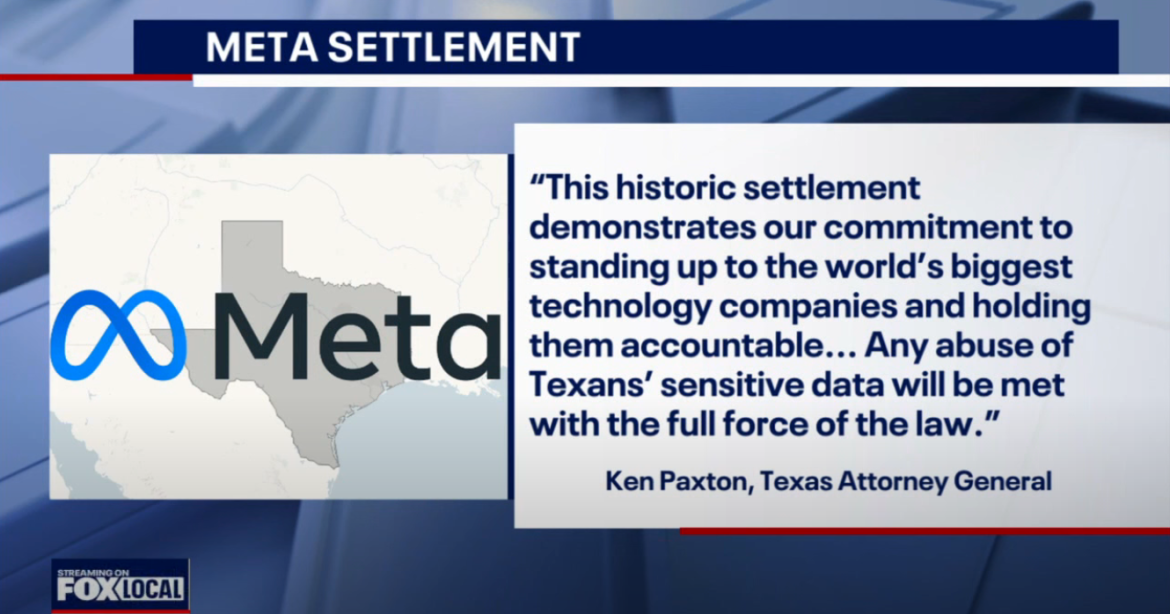Meta Platforms, the parent company of Facebook and Instagram, has agreed to pay $1.4 billion to settle a lawsuit over its use of facial recognition technology. The State of Texas filed the lawsuit, accusing Meta of illegally gathering biometric data from users without their consent. This settlement marks the largest ever obtained by a single state, according to the Texas Attorney General’s office.
The lawsuit alleged that Meta violated Texas law, which requires companies to obtain explicit consent before collecting personal data such as biometric identifiers. The state’s attorney general argued that Meta’s facial recognition practices infringed on users’ privacy rights by collecting and storing their facial data without proper notification or approval.
Attorney General Ken Paxton commented on the settlement, stating, “This historic agreement sends a strong message that we will not tolerate companies disregarding our privacy laws. Meta’s actions were a clear violation of the trust users placed in them, and this settlement ensures they are held accountable.”
Meta has faced growing scrutiny over its data privacy practices in recent years. The company announced in 2021 that it would shut down its facial recognition system and delete more than a billion facial recognition templates, citing concerns about the technology’s potential for abuse and the need for more robust privacy protections.
In response to the settlement, Meta issued a statement reaffirming its commitment to user privacy and transparency. “We are pleased to have reached an agreement with the State of Texas. Protecting people’s information and privacy is fundamental to our business, and we have made significant changes to our practices to ensure we meet the expectations of our users and regulators,” the company stated.
The $1.4 billion settlement will be used to fund privacy initiatives and support affected users in Texas. The attorney general’s office has indicated that it will continue to monitor Meta’s compliance with state privacy laws and take action as necessary to protect consumers.
This settlement highlights the increasing regulatory pressure on tech giants to prioritize user consent and data protection. It also underscores the broader implications for the industry as governments worldwide grapple with the challenges posed by emerging technologies and their impact on privacy.
As the largest state settlement in history, this agreement with Meta sets a precedent for how tech companies must handle biometric data and user privacy. It serves as a reminder of the importance of transparency and consent in the digital age.



